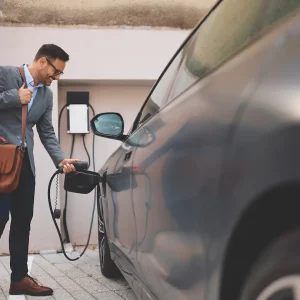The long-term effects of the pandemic will, no doubt, be seen for years to come. But as restrictions begin to ease and we move out of the UK’s third lockdown it is fascinating to see the car leasing trends that are beginning to emerge.
Families who have spent more time at home and travelled predominantly on foot are wondering if they really need more than one car, and businesses who have adapted quickly to online communication are considering whether a fleet of branded vehicles is really necessary.
Everyone is reconsidering and re-evaluating their unexpectedly new-found circumstances.
So, what can the car leasing industry expect post lockdown?
Families downsizing to one car
Most families have spent an inordinate amount of time at home over the past 12 months. With no office commutes or school runs and the only leisure activity to partake in being walking, cars have sat for months, unused, on driveways.
A lot of families will be considering downsizing to just one car. Where they have become accustomed to walking or cycling instead of driving, they may be looking to continue a healthier regime which could incorporate biking or walking to work or school.
People avoiding public transport
We are seeing the trend that people no longer have the confidence to go on a bus or a train. They would rather avoid mixing with other people in small spaces and, therefore, stay away from public transport to lessen their risk of infection.
Instead, we have seen more customers looking at purchasing smaller, city cars to get them to and from work should they need transport. Electric cars are very popular, especially for London commuters as there is no congestion charge for electric vehicles and they provide a more comfortable experience than The Underground.
The Cycle To Work Scheme has also grown in popularity for those still travelling to work.
Spreading the cost and the hassle
People do still need a car and they want to go out after being stuck at home for so long. Getting out in the car is some light relief, even if you can only go around your own town.
We are seeing the growing trend of the smaller car and lower mileage. There has been a lot of mileage reduction, in particular from companies who used to have fleet cars for sales reps, who have realised they don’t need employees going up and down the country all the time – some business meetings can be done by video call.
Contractual mileage used to be 12-15,000 a year and now its 5-8,000 a year as people are working from home and not travelling as much as before.
The contractual time used to be a standard two years, but people are now looking at four-year contracts offering smaller payments over a longer term.
Many people have faced a reduced income or more financial pressure, so choosing a leasing package with smaller monthly payments can be helpful.
Smaller initial payments are also more popular currently as customers struggle to find vast sums of money to put down as a deposit.
Two sides to the coin
There will be two specific types of customers post lockdown. The conservative drivers who have perhaps struggled financially throughout the pandemic or are cautious when spending. They want one small car on a four-year contract with low mileage and minimum payments.
Then on the other side, you’ve got the ‘you only live once’ customers who have a vivacious approach to life, have worked throughout the lockdown or are very wealthy, and have a plentiful pot of disposable income. These clients will always go for the sporty car, the Mercedes sports convertible, without taking too much time to consider the cost.
Going green
People have become more environmentally conscious through not using their cars and cycling or walking more.
Many companies have been incentivised to choose electric cars after the monumental push from the Government to encourage people to go green.
This wouldn’t have happened without the Government benefits, in my opinion. Now, there is no company car tax if it’s an electric car. I think there’s a small amount of people wanting to go greener, but it’s been heavily increased by the Government.
However, if all cars were electric then the National Grid wouldn’t be able to cope. There are plans for all vehicles to be fully electric or hybrid by 2035 but I don’t think we have the infrastructure in place for that and it will have to be extended.
What should you consider when leasing a car post lockdown?
Ultimately you need to consider what you are using the car for. If you are a business looking for fleet cars then definitely go for greener side of things. If you opt for 100% electric there are vast cost savings for both the business and the driver.
As a private customer, if you are doing low mileage then it is worth looking at electric or hybrid as the cars are easier to maintain and there are plenty of domestic savings to be had.
Nobody really knows what is coming, when the pandemic will end or what lies in store but as a new normal dawns, it is worth considering all the options available to you and, like the rest of the world, reevaluate your situation and the best way to proceed.
Scott Norville is managing director of Silverstone Fleet Management
Picture credit: Jane Russell Photography




